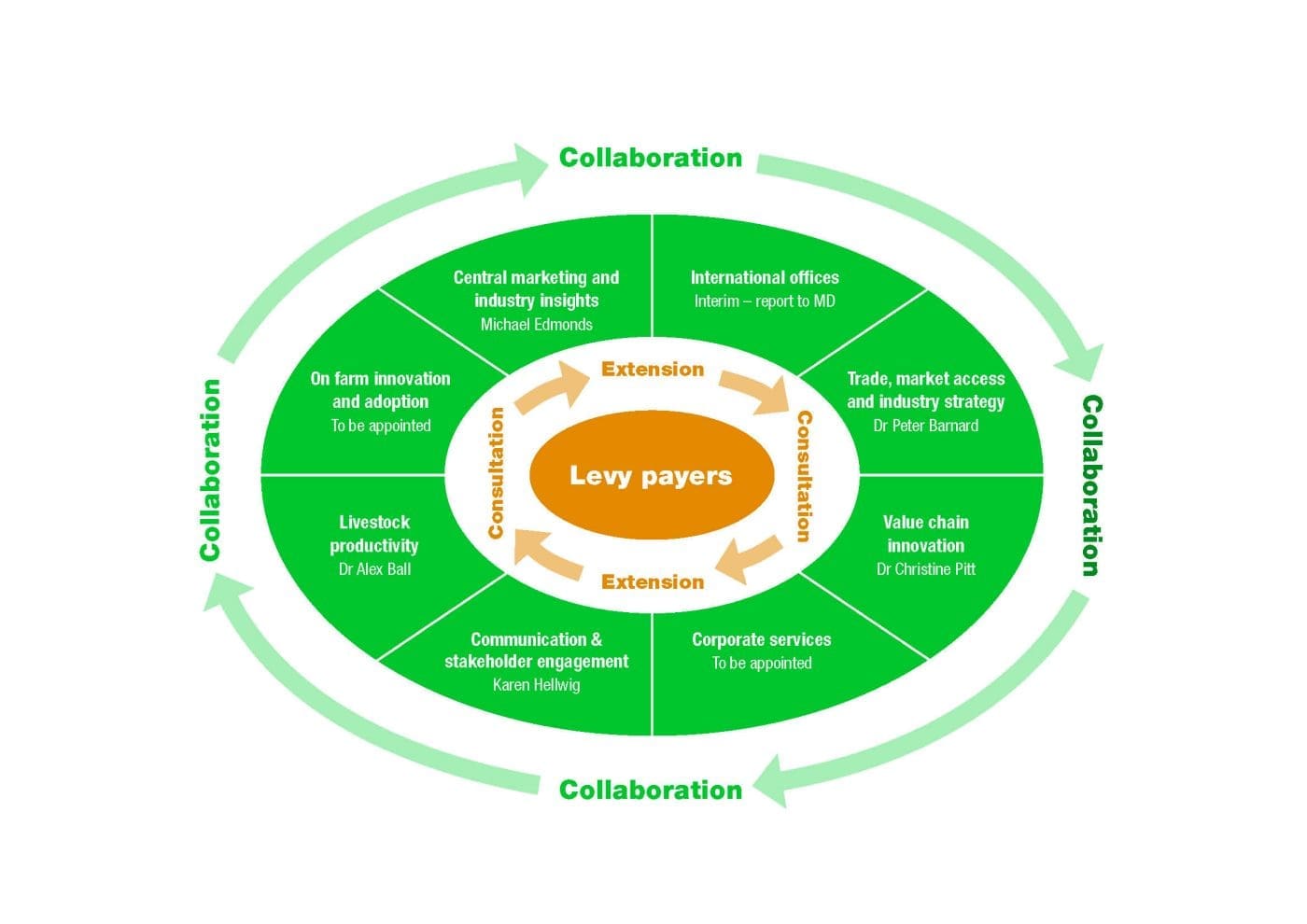New Meat and Livestock Australia managing director Richard Norton appears to be taking a hard-nosed but pragmatic approach to the service delivery company’s looming funding shortfall, driven by the inevitable decline in slaughter numbers and consequent levy stream from next year.
MLA’s recent mid-year projections document forecasts that total adult cattle slaughter next year will fall by almost one million head, from 8.3 million this year to around 7.4 million. Further, the slaughter number is predicted to stay low, not going past eight million cattle again until at least 2021.
All that puts a huge dent in MLA’s potential revenue stream from 2015, and Mr Norton appears to be taking decisive action to ‘cut MLA’s cloth’ to fit the circumstances.
His presentation yesterday indicated that the body’s full efficiency and effectiveness review, to be completed over the next four weeks, will provide guidance over what needs to be done to deliver a targeted 10 percent reduction in fixed costs across the business, representing $6 million over the next 12 months.
While some of that will involve cost savings in other areas, staff rationalisation will inevitably be part of that process.
Already, it has been confirmed that two senior MLA managers, Peter Vaughan (general manager, livestock production innovation) and Greg Taylor, (general manager of finance, IT and contract services), have today tendered their resignation, effective today.
It has been suggested in industry circles that around 20 of MLA’s current complement of 248 staff might be missing by the time the process is complete. Other senior management names have been connected with redundancy, dependent on discussions in the efficiency review currently being executed.
Mr Norton chose not to speculate on the final number, but said it would be considered as part of the efficiency and effectiveness review, which will look at a wide range of fixed costs – not just staffing levels, but items like rentals and leases across various offices, travel, accommodation and countless other budget items where trimming might occur.
Scrutiny of the diagram published here (circulated to peak councils this week,and accessible in larger fomat in the gallery at the base of this page) suggests there are other winners and losers in the management restructure. Respected meat scientist Dr Alex Ball, appears to have been elevated into a general management role, as head of livestock productivity. Not appearing currently on the list is current general manager, industry systems, Michelle Gorman, however appointments remain to be made in the areas of corporate services and on-farm innovation and adoption.
While MLA has advertised recently for a new regional manager for the Middle East/North Africa region, it should be pointed out that this vacancy is not connected with the current restructure, as the incumbent regional manager, Jamie Ferguson, gave extended notice some months ago.
Current general manager global marketing, Michael Edmonds will surrender overall management responsibility for MLA’s international offices (they will now report directly to Richard Norton), moving into the newly-created category of central marketing and industry insights.
This is an area that Richard Norton placed significant emphasis on during his briefing yesterday with Beef Central.
“We are attempting to do more in the area of thought leadership, and part of that is giving industry better insights into consumer and retail/food service trends,” he said.
“To the credit of MLA it does a lot of work about report writing and economic briefings, but we actually want to use that information better in future for our strategies and industry insights. Those insights might help us better understand whether we are spending our marketing dollars in the best possible location and way.”
“That may have happened to some extent in the past, but I’m making MLA very much an evidence and data-based organisation in this area. I think MLA has the capability to do more in this space itself, providing industry with insights both for MLA strategies, and industry strategies going forward,” Mr Norton said.
“If, for example, Sheepmeats Council comes to MLA and asks whether the lamb industry should be spending more marketing dollars in the US market, I want MLA, rather than consultants, to be the evidence-based data source for that decision-making, so that future levy payers know exactly how and why a marketing decision is made.”
Mr Norton told beef Central yesterday that the heart of the restructure was the systems review, with a host of other influences including, obviously, the board’s views, but also the senate inquiry hearing and dialogue and countless conversations he had had with stakeholders since arriving in the job back in March.
“Our levy stream will obviously come off the boil over the next two years, so we have to find ways to address that. It’s what levy payers are seeking, together with ways of making the organisation more efficient and effective.
“If we don’t address the potential $6 million deficit in income next year promptly, we get a double whammy – we face a potential $12 million hole the following year,” he said.
“Just given the rate of kill and the amount of cattle that have been slaughtered this year and last, it’s not hard to forecast a $6 million hole next year.”
“We have to do something, and a lot of the action starts now: it will be implemented over the next four weeks.”

